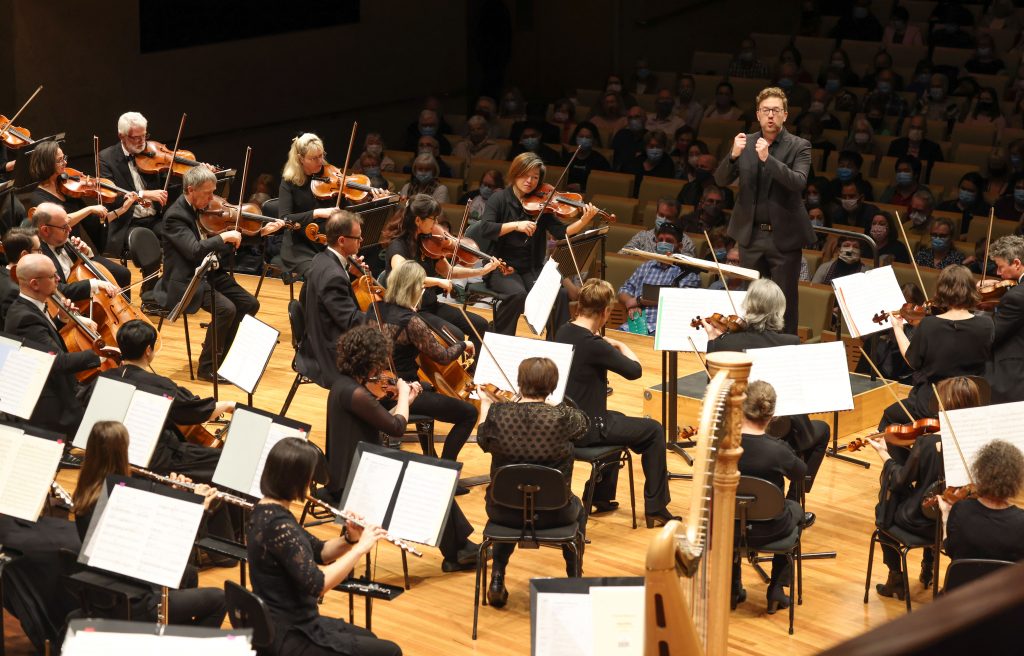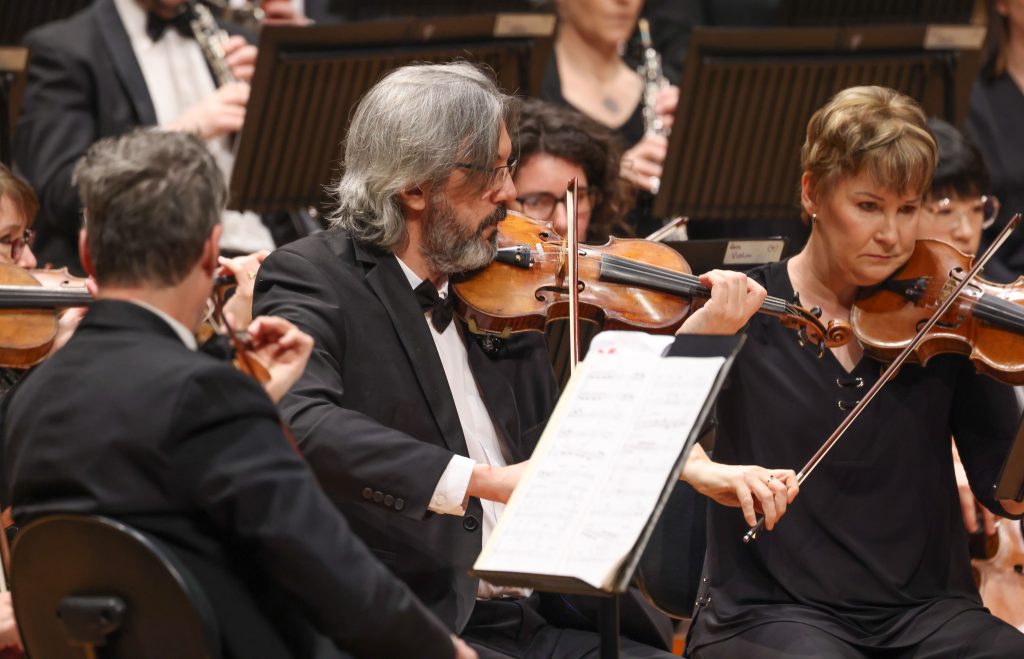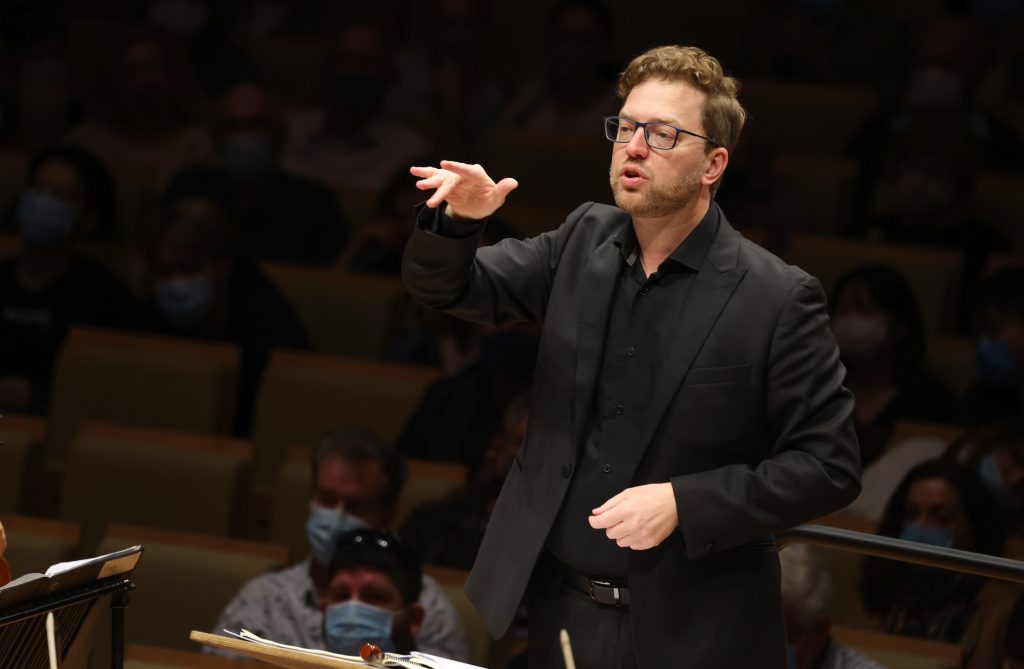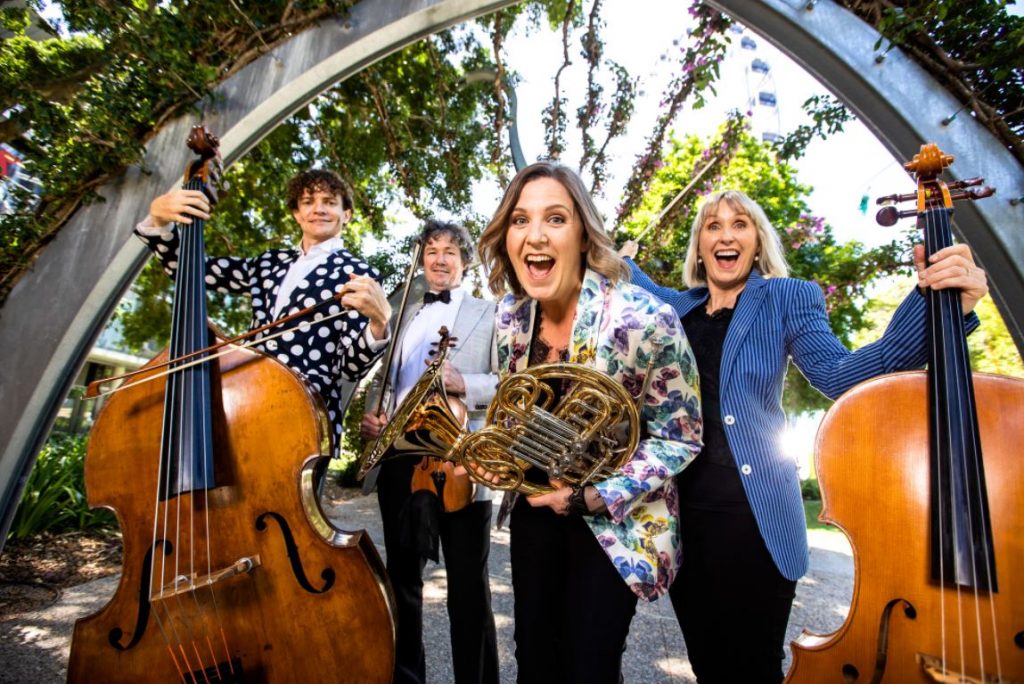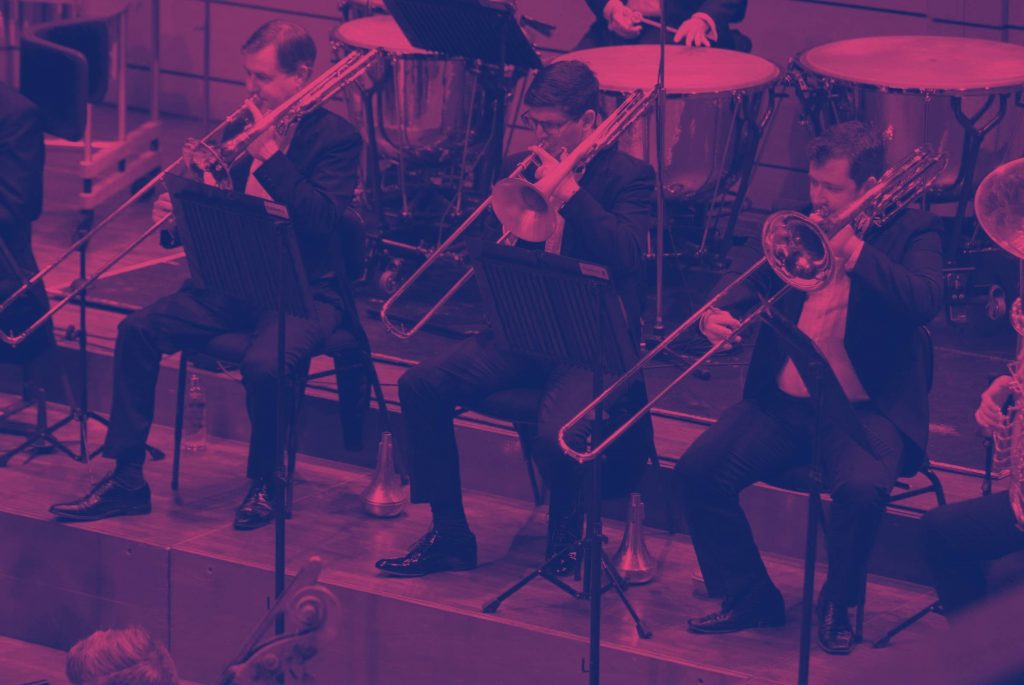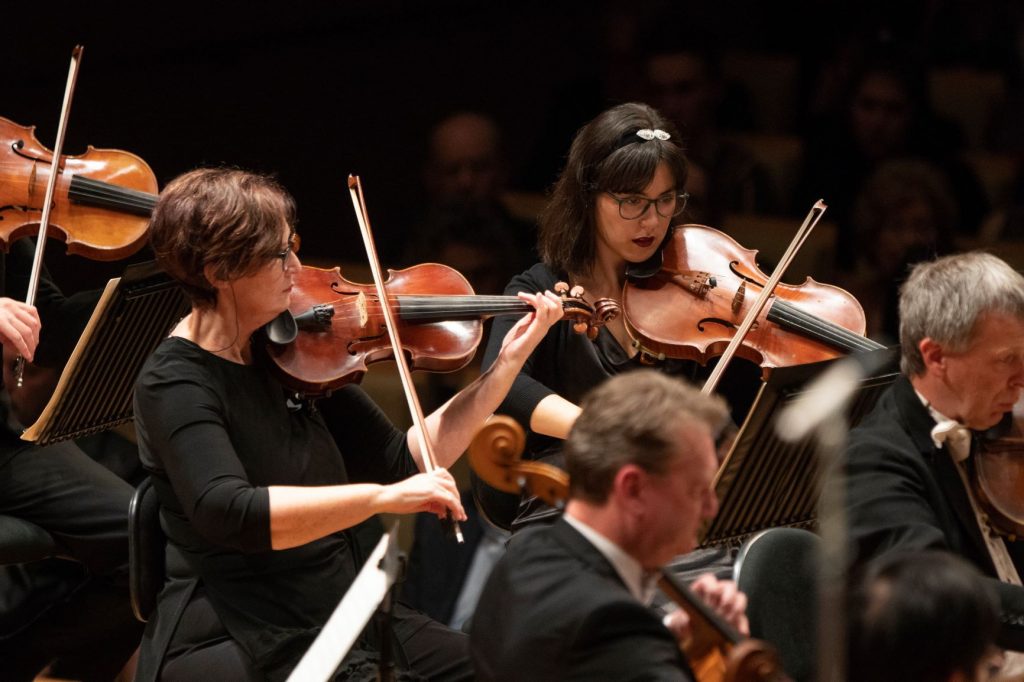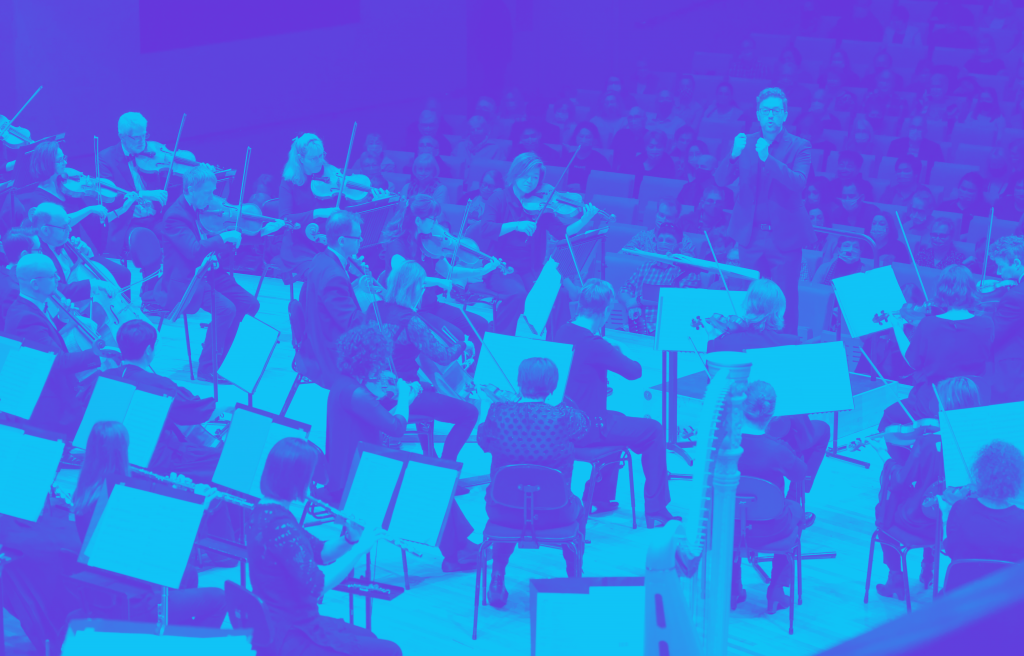
‘Great Inventions’ // Queensland Symphony Orchestra
‘Great Inventions’ was great.
There’s no better way to spend a windy winter’s Sunday morning than to watch the Queensland Symphony Orchestra’s (QSO) ‘Great Inventions’ concert at QPAC. Conducted by Australian conductor Benjamin Bayl, this concert took the audience through a program of pieces by music’s tremendous compositional inventors as well as the human-made inventions that inspired them.
The first piece was the second movement (‘Andante’) of Haydn’s Symphony No. 101 in D (‘The Clock’). Bayl conducted the piece easily without a baton, an impressive feat for a piece so precise and detailed. His conducting was impeccable and led the orchestra through the classical composition, balancing the instruments exceptionally well. The musicians played with stylistic accuracy and mostly in time with the other sections.
Following this, the next piece was Rameau’s Dance Excerpts from ‘Platée: Rigaudons, Tambourins, and Orage’. These Baroque excerpts were played technically authentically with lively ornamentation. ‘Orage’ – translated to ‘Storm’ and the final excerpt played – featured exciting percussion additions like a wind machine, thunder sheet, and rain stick to bring the piece to life. It was quite a jarring yet appreciated and interesting experience to hear those instruments in a Baroque piece.
The third piece was the third movement (‘Scherzo: Allegro vivace’) from Symphony No. 3, ‘Eroica’ by Beethoven. This piece was played with the playful qualities of a scherzo and the strength of Beethoven’s composition style. The sudden shift in dynamics was handled expertly by the conductor and musician alike. The French horn players were able to display their skill and tonal brilliance throughout the piece.
Next up was ‘Pagodes’ from ‘Estampes’ by Debussy. At the Paris Exposition in 1889, Debussy heard Balinese gamelan orchestras for the first time and was inspired by the beautiful instruments and their capability. This orchestral version of his original piece was created by André Caplet – Debussy’s disciple – and draws on Debussy’s inspiration by implementing celeste, triangle, cymbals, gong, and harp. This piece was almost filmic in its incredible instrumentation, pentatonic melody, and gorgeous harmony. Bayl brought to life a wonderful and peaceful atmosphere with the musicians – a special kudos to the percussion section and celeste and harp players – for the well-balanced and intricately played piece.
The fifth piece was Jones’ third movement (‘Largo; Allegro molto’) from ‘Concerto for Tuba and Orchestra’ with tuba player Thomas Allely as the soloist. This piece was inspired by James P. Crowder, who was a Senior Technical Fellow at Boeing and was commissioned by his widow after his death in 2002. It follows the journey Crowder took as an inventor, and particularly in this third movement, as he tests his creation. Allely was an absolute powerhouse for this difficult piece, soaring above the orchestra and propelling them forward. The balance between soloist and orchestra was brilliant and the small duets between the tuba and flute or piccolo were great to hear. A round of applause to Allely for his marvellous tuba solo.
The penultimate piece was the peaceful ‘City Lights, A Mile Up’ by Greenbaum. This piece was influenced by, as Greenbaum says, “Arriving on a clear night by plane…beautiful views of a city’s lights mapping out the electric architecture of human civilization. It’s a welcoming image – the guiding lights for travellers arriving at a new destination or returning home.” This piece – with the surprising yet delightful addition of piano – was intensely lush and felt by all in the audience. The rich chords in the strings punctuated by a drone beat by mostly the harp and vibraphone kept the piece grounded while taking the audience upward.
The finale was Rimsky-Korsakov’s ‘Capriccio espagnol’. This energetic piece inspired by traditional Spanish music was a lively way to end the concert. The small solos in each of the instrument sections were fantastic – especially the more exposed solos in the fourth movement – and Bayl’s conducting of the different movements of the piece was seamless. The audience thoroughly enjoyed the performance, cheering loudly after the final chord.
QSO’s Sunday morning concerts are a wonderful opportunity to delve into the world of classical music as a very broad term. The skills of the musicians and conductor were amazing; their entertaining banter and informative mini-interviews between the pieces were highly enjoyable.
The next QSO Sunday morning concert is on 29 August 2021 and themed ‘Around the World’. To book tickets, visit QSO’s Event Page. For more information about the QSO and their future concerts, visit their website.




